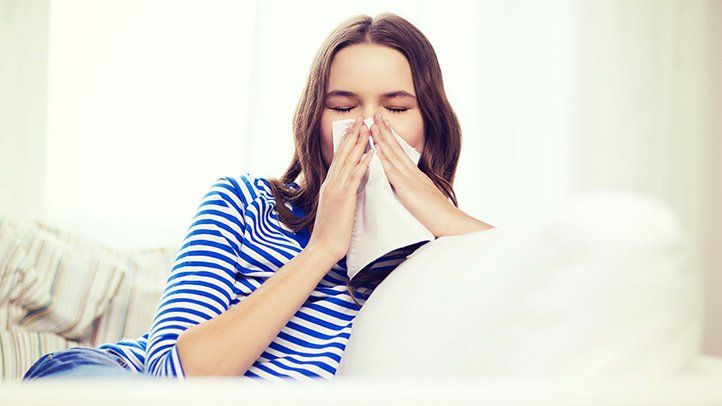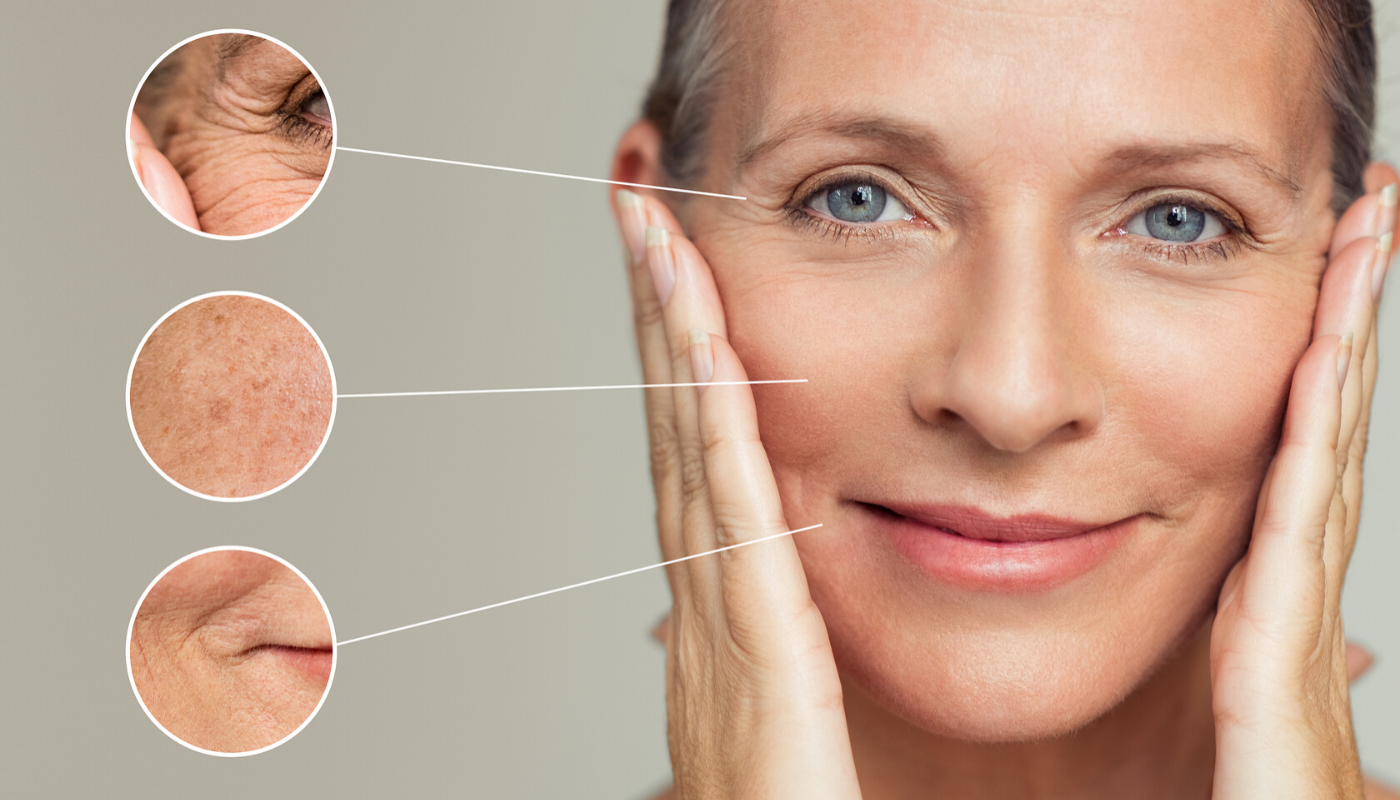Beyond the Sniffles: Understanding and Managing Allergies
Allergies are more than just a seasonal nuisance. They're a chronic condition that affects millions of people worldwide. From the mild inconvenience of sneezing and itching to more severe reactions that can be life-threatening allergies can significantly impact quality of life. But allergies are not a life sentence of discomfort and inconvenience. With understanding proper management and the right treatment allergies can be kept under control allowing individuals to lead normal healthy lives.
Understanding allergies means more than just knowing what makes you sneeze or break out in hives. It's about understanding the underlying immune response recognizing the wide range of potential allergens and knowing how to effectively manage and treat allergic reactions. It's about taking control of your health and not letting allergies control you.
What are the most common allergy symptoms?
Allergies can be elusive presenting a range of symptoms that may sometimes be mistaken for a common cold or other illnesses. Understanding the most common symptoms of allergies can help in their timely identification and management. It's essential to remember that symptoms can vary in intensity from mild discomfort to severe life-threatening reactions and the type of allergen involved can significantly influence the symptoms experienced. Here are some common allergy symptoms explained in more detail:
- Sneezing and Runny Nose: These are hallmark symptoms of airborne allergies also known as allergic rhinitis or hay fever. When an individual with allergies breathes in an allergen such as pollen dust mites or pet dander the immune system overreacts leading to inflammation of the nasal passages. This causes sneezing and a clear runny nose often accompanied by nasal congestion and an itchy or tickling nose.
- Itchy Watery Eyes: Known medically as allergic conjunctivitis these symptoms are a reaction to allergens that irritate the eyes. Allergens such as pollen dust or pet hair can cause the eyes to turn red itch and water. Some people may also experience swelling of the eyelids.
- Rash or Hives: Allergic reactions can often cause skin disturbances. Contact dermatitis is an allergic reaction that occurs when the skin comes into direct contact with an allergen such as certain plants soaps or fabrics leading to a red itchy rash. Urticaria or hives presents as red itchy raised welts on the skin and can be a reaction to various allergens including foods medications and insect stings.
- Swelling: Allergies can cause localized or widespread swelling known as angioedema. This typically affects the face lips tongue throat or limbs and can occur alongside other symptoms like hives. Angioedema can sometimes indicate a severe allergic reaction.
- Shortness of Breath or Wheezing: Allergies can affect the respiratory system leading to symptoms such as shortness of breath wheezing or coughing. These are common symptoms of asthma which can be triggered by various allergens. Severe food or insect sting allergies can also cause respiratory symptoms.
- Anaphylaxis: This is the most severe allergic reaction and is a medical emergency. Symptoms come on quickly and can include a rapid weak pulse skin rash nausea vomiting difficulty breathing and loss of consciousness. It's vital to seek immediate medical attention if anaphylaxis occurs.
Allergy Treatment
Allergy treatment involves managing symptoms and preventing allergic reactions. Here are some common treatments:
- Avoidance: The most effective treatment for allergies is to avoid allergens. This may involve making changes to your home environment diet or lifestyle.
- Medication: Allergy medications can help manage symptoms. These can include antihistamines decongestants and corticosteroids.
- Immunotherapy: For severe allergies immunotherapy (allergy shots) can help your body become less sensitive to allergens.
- Emergency epinephrine: For life-threatening allergies carrying emergency epinephrine can be a lifesaver.
How to Manage Allergies?
Living with allergies can be challenging but by taking a proactive approach to manage them individuals can lead a normal symptom-free life. Effective management involves understanding allergens implementing preventive measures and adhering to prescribed treatment plans. Here's a comprehensive guide to managing allergies.
- Know Your Allergens: The Power of Knowledge Identifying the specific allergens causing your symptoms is the first and crucial step in managing allergies. This often involves undergoing allergy tests which can include skin tests blood tests or elimination diets for food allergies. Working with an allergist or immunologist can provide a precise understanding of what triggers your allergic reactions and help tailor a personalized management plan.
- Avoid Allergens: Prevention is Key Once you've identified your allergens proactive steps should be taken to avoid exposure. For example if you're allergic to pollen keeping windows closed wearing sunglasses outdoors and showering after being outside can reduce exposure. For food allergies careful reading of ingredient labels and clear communication about your allergy when dining out is essential. Dust mite allergies might necessitate regular vacuuming using dust mite-proof bedding and maintaining a low humidity level in your home. Pet allergies may require certain boundaries like keeping pets out of the bedroom. Each allergen will have its own set of preventive measures and implementing these can significantly reduce the frequency and severity of allergic reactions.
- Take Medication as Prescribed: Adherence and Effectiveness Allergy medications whether over-the-counter or prescription are designed to manage symptoms and prevent allergic reactions. These may include antihistamines decongestants corticosteroids or leukotriene modifiers. In some cases allergy shots (immunotherapy) may be recommended. It's essential to take these medications as directed by your healthcare provider to ensure their effectiveness. If you experience side effects or feel that your medication isn't managing your symptoms effectively consult your healthcare provider to discuss potential alternatives or adjustments to your treatment plan.
- Monitor Your Symptoms: Insight into Allergy Triggers Keeping track of your symptoms and potential triggers can provide valuable insight into your allergies. Maintaining a symptom diary noting when and where reactions occur the severity of symptoms and any potential triggers can be beneficial. Over time this can reveal patterns and help refine your management strategies.
- Have an Emergency Plan: Preparedness for Severe Allergies For individuals with severe allergies that can result in anaphylaxis having an emergency plan is crucial. This plan should include carrying an auto-injectable epinephrine (like an EpiPen) at all times and knowing how and when to use it. Ensure that family members friends and colleagues are aware of your allergies know how to identify an anaphylactic reaction and understand how to administer emergency treatment.
Allergy Medications
Allergy medications are a key component of allergy management. They can help manage symptoms and prevent allergic reactions. Here are some common types of allergy medications:
- Antihistamines: These medications can help relieve symptoms like sneezing itching and runny nose.
- Decongestants: These can help relieve nasal congestion.
- Corticosteroids: These can help reduce inflammation and relieve symptoms.
- Leukotriene modifiers: These can help block the action of certain immune system chemicals.
- Immunomodulators: These can help regulate the immune system and reduce allergic reactions.
Conclusion
Managing allergies goes beyond just treating the sniffles. It's about understanding the nature of allergies recognizing your personal triggers and taking proactive steps to avoid allergens. It's about using allergy medications as needed but also about making lifestyle changes that can help reduce your exposure to allergens and improve your overall health.
With the right strategies and treatments allergies can be managed effectively allowing you to live a healthy symptom-free life. It's about taking control of your allergies rather than letting them control you. It's about living fully without fear of allergens and enjoying life without the constant worry of allergic reactions.






